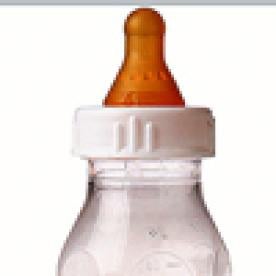As the April 1, 2018 effective date of the Massachusetts Pregnant Workers Fairness Act (“MPWFA”) draws near, it is time to ensure that company policies and practices are in compliance with the new law. Within the last few months, the Massachusetts Commission Against Discrimination (“MCAD”) has issued interpretative guidance (including initial guidance issued January 23, 2018 and updated guidance issued February 27, 2018), which offers additional insight into the requirements of the new law (as previously discussed here and here). Although the full text of the guidance should be reviewed in full, employers should take particular note of the following details:
-
Notice Requirement: Employers are reminded that they are required to provide employees with written notice of their rights (whether in the form of a handbook, pamphlet, or some other means) under the MPWFA no later than April 1, 2018. As April 1, 2018 is fast approaching, employers are advised to work closely with counsel to ensure compliance with this notice requirement. After April 1, employers must also provide written notice to new employees at or prior to the beginning of their employment, and within 10 days of receiving notification that an employee is pregnant.
-
“Condition Related to Pregnancy” and Reasonable Accommodations: “Conditions related to pregnancy” for which employers must provide reasonable accommodations include conditions “during or after pregnancy,” including morning sickness. Employers should consider whether an employee suffering from morning sickness may receive an accommodation permitting her to arrive at work later each day during some period of her pregnancy. It bears further noting that the MCAD does not address whether conditions related to pregnancy that precede the actual pregnancy, such as procedures pertaining to in vitro fertilization for instance, would be covered by the MPWFA.
-
Frequency & Duration of Breaks to Breastfeed or Express Breast Milk: Employers must allow employees to take breaks to breastfeed or express breast milk as often as is needed, absent undue hardship. The number and frequency of such breaks should be determined on an individual basis and may require adjustment over time. There is no statutory time designated for such breaks, but employers “must allow the time needed.” The U.S. Department of Health and Human Services generally provides that lactation-related breaks last fifteen to twenty minutes, not including time moving to and from the break room, or setting up and breaking down equipment. Employers are not required to pay employees for such breaks, but if paid breaks are provided, employees must be permitted to use those paid breaks for breastfeeding or expressing breast milk.
-
Space for Breastfeeding or Expressing Breast milk: Employees are permitted to breast feed and express breast milk in their personal work space if it is equivalent to a private, non-bathroom space, and may continue working while doing so. A separate space for breastfeeding or expressing breast milk, if one does not already exist, must be prepared “promptly” once an employer is on notice that an employee will need it. That space should include electrical outlets and a surface or table capable of holding a breast pump.
-
Enforcement: Employees seeking to enforce their MPWFA rights must file a complaint with the MCAD and/or Equal Employment Opportunity Commission within 300 days from the date the allegedly discriminatory act occurred.
Because the MPWFA requires that employers provide a reasonable accommodation specific to each employee, there will not be a “one size fits all” policy that complies with the law’s requirements. Rather, the employer must engage in an interactive dialogue specific to each employee at issue regarding that employee’s particular needs. Accordingly, as the law goes into effect and thereafter, we encourage you to consult with counsel both to ensure that the notice requirements have been satisfied and to discuss specific situations and potential accommodations as they arise.
Laura Franks also contributed to this post.




 />i
/>i

